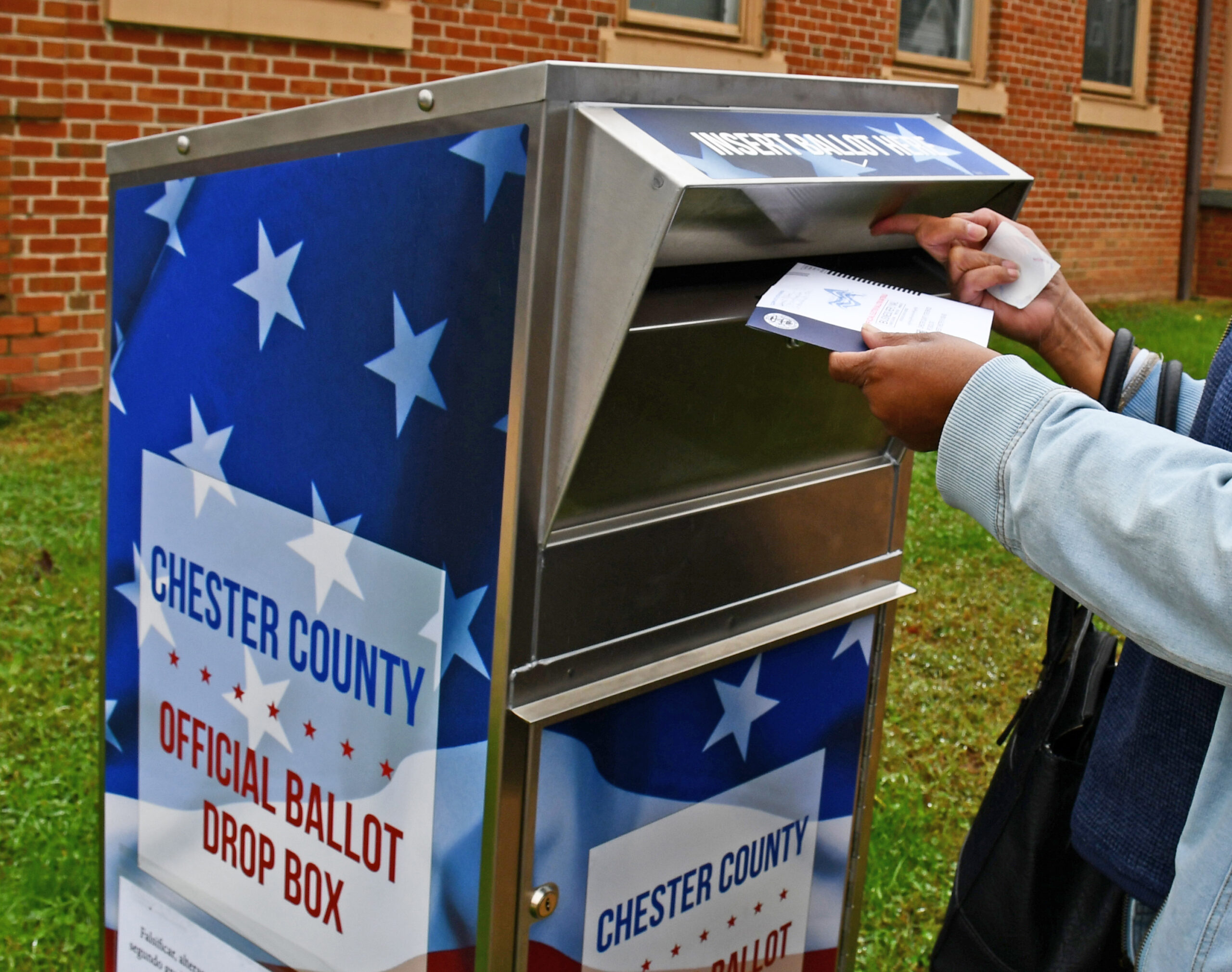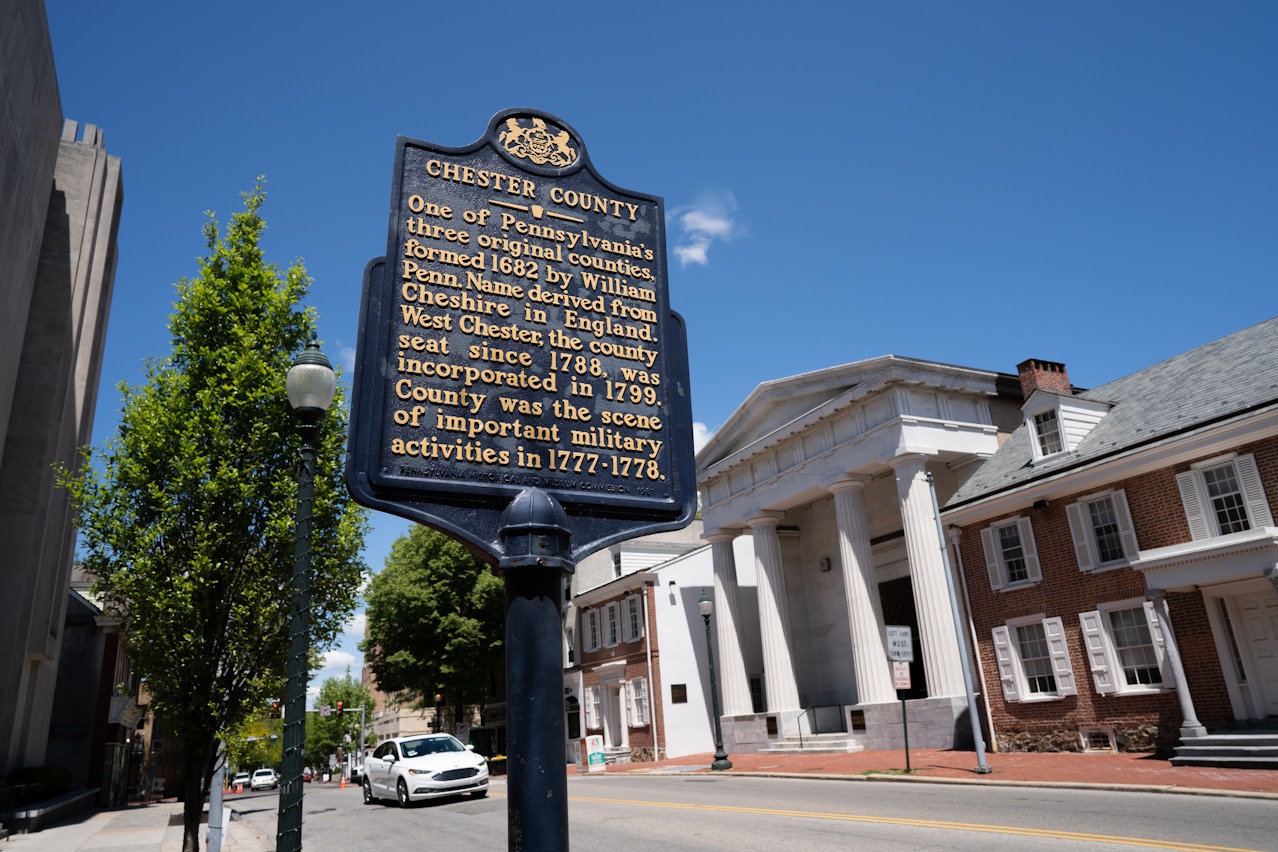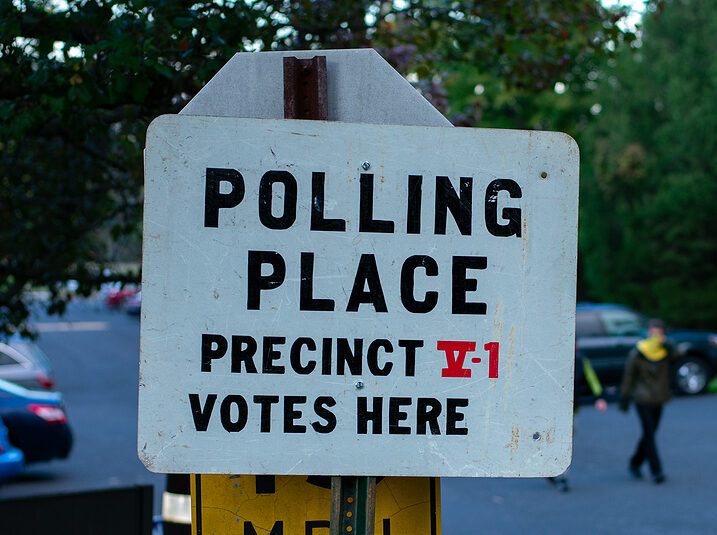Dem Organization Floods Chester County Mailboxes With Ballot Applications, Sparking Concerns

Chester County election officials want residents to know the mailings voters are receiving from Democrat-affiliated nonprofits are not official and they are not coming from the county.
“Two political advocacy groups, the Voter Participation Center (VPC) and the Center for Voter Information (CVI), will be conducting unsolicited direct mailings to Pennsylvania residents consisting of voter registration applications and vote-by-mail applications,” a county spokesperson said Monday. “These mailings will reportedly arrive on or about Monday, April 25, and are not endorsed by, or affiliated with, the Chester County Board of Elections or Chester County Voter Services.”
And those groups “bear all responsibility for the mailings, including any mailings that contain incorrect information,” the county said.
Tom Lopach is president and CEO of the VPC and CVI. He said the Washington, D.C.-based group sending mailings to voters statewide wants to register what Lopach calls “the new American majority.”
He said that “majority” is comprised of “people of color, young people and unmarried women.” Those groups tend to register to vote and turn out to vote in lower numbers than other groups. CVI and its sister group, VPC, also help turn out those voters.
“Our mission is to help increase voters in these three groups,” Lopach told Delaware Valley Journal. He has been involved with the organization since March 2020 and said registering voters is “a proud thing to do” and “very patriotic.”
Lopach is also a longtime Democratic operative who has worked on multiple campaigns. The progressive news organization Pro Publica reported his organizations’ efforts pouring millions of unsolicited voter registrations into mailboxes during the 2020 election created confusion among voters and consternation among election officials.
“It’s not about the good that one organization does,” Jared Dearing, director of Kentucky’s State Board of Elections and a Democrat said at the time. “It’s about the net value for the whole system. If you register one person but create so much anxiety and consternation, how many voters get so turned off they don’t interact with the system at all?”
CPI sent 2.2 million vote-by-mail applications to registered voters in Pennsylvania. Lopach said they use forms that were approved by the state.
According to Lopach’s definition, the “new American majority” includes 5 million people in Pennsylvania or 52 percent of the state’s voting-eligible population. People 18 to 35 years old are about 29 percent of those eligible to vote; people of color, including Blacks and Hispanics, are 18 percent; and single women are 26 percent.
Asked whether his organization had received funding from Facebook founder Mark Zuckerberg, so-called “Zuck Bucks” that some believe helped sway the 2020 election for Democrats, Lopach said his organization does not discuss donors, nor is it required to disclose its donors, who are foundations and individuals.
“We are reminding Pennsylvania voters that voting in primary elections is easy. In Pennsylvania you can vote by mail, early in-person, or in-person on Election Day,” Lopach said. “We are providing more than 2.2 million registered Pennsylvania voters with official vote-by-mail applications, allowing them to sign them and drop them in the mail without ever leaving their homes. So make your plan to vote today and participate in our great democracy.”
“CVI and its sister organization, the Voter Participation Center (VPC), together run the nation’s largest mail-based and digital voter engagement programs,” the groups said in a press release. “In 2020, VPC and CVI helped 4.6 million voters sign up to vote by mail.”
While Lopach insists his groups are nonpartisan, others disagree with that assessment.
According to research by Hayden Ludwig of the think tank Capital Research Center, Lopach’s two organizations were founded by Page Gardner, who was a campaign staffer for former President Bill Clinton. Lopach said he knows Gardner but added he did not realize she had worked for Clinton. Lopach also has a background in Democratic politics. He had previously worked for Democrat Steve Bullock, former governor of Montana, and was executive director of the Democratic Senatorial Campaign Committee.
“Gardner’s groups take advantage of IRS rules allowing nonprofits to engage in nonpartisan voter registration to target the ‘new American majority’—a group that gave more than 60 percent of its votes to Biden in 2020,” Ludwig said.
“The nonprofits are hardly ‘nonpartisan.’ CVI, the network’s 501(c)(4), spent $583,000 directly aiding Biden—but it’s their support for voting by mail that should concern conservatives. Unlike the right, the left is all in on funding groups that do nothing more than voter registration,” according to Ludwig. The mail-in ballots were to “flood key states with tens of millions of mail-in ballots.”
Charlotte Valyo, chair of the Chester County Democrats, said she has not had contact with either group. Chester County Republican Chairman Gordon Eck could not be reached for comment.
May 2 is the last day to register to vote in the May 17 primary. As of April 18, Chester County had 373,975 registered voters. Of those, 150,606 were Republicans and 155,604 were Democrats.
Anyone who receives an unsolicited VPC or CVI mailing who wants to be removed from the group’s mailing list must note a code near the bottom of the letter and email the code to the correct organization, county officials said.
Follow us on social media: Twitter: @DV_Journal or Facebook.com/DelawareValleyJournal










